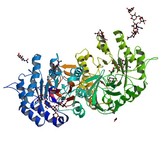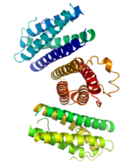Biosimilars/News
Nichi-Iko gains Japanese approval for infliximab biosimilar
Japan-based generics maker Nichi-Iko Pharmaceutical (Nichi-Iko) announced on 27 September 2017 that it had gained Japanese approval for its infliximab biosimilar.
JCR files for Japanese approval of agalsidase beta biosimilar
Japan-based JCR Pharmaceuticals (JCR) announced on 29 September 2017 that it had applied for Japanese regulatory approval for its agalsidase beta biosimilar (JR‑051).
FDA accepts application for Adello’s filgrastim biosimilar
US-based biosimilars specialist Adello Biologics (Adello) announced on 11 September 2017 that the regulatory submission for its proposed filgrastim biosimilar had been accepted by the US Food and Drug Administration (FDA).
EMA approval for adalimumab and trastuzumab biosimilars
The European Medicines Agency’s (EMA) Committee for Medicinal Products for Human Use (CHMP) announced on 15 September 2017 that it had recommended granting marketing authorization for the adalimumab biosimilar Cyltezo and the trastuzumab biosimilar Ontruzant.
FDA accepts application for rituximab biosimilar from Sandoz
Sandoz, the generics division of Novartis, announced on 12 September 2017 that the regulatory submission for its proposed rituximab biosimilar (GP2013) had been accepted by the US Food and Drug Administration (FDA).
FDA approves bevacizumab biosimilar Mvasi
On 14 September 2017, the US Food and Drug Administration (FDA) approved its first biosimilar for the treatment of cancer.
Second etanercept biosimilar approved in Canada
Sandoz, the generics division of Novartis, announced on 21 August 2017 that its etanercept biosimilar, Erelzi, is now available in Canada.
Sanofi receives tentative FDA approval for insulin lispro biosimilar
Pharma giant Sanofi announced on 1 September 2017 that it had received tentative approval for Admelog, its insulin lispro biosimilar, from the US Food and Drug Administration (FDA).
Two trastuzumab biosimilars submitted to FDA
Two different groups announced that their trastuzumab biosimilars had been successfully submitted to the US Food and Drug Adminstration (FDA) for review.
EC approval for three rituximab biosimilars
On 13 July 2017, three rituximab biosimilars, Blizima, Rituzena (previously Tuxella) and Ritemvia, received European Commission (EC) approval.












